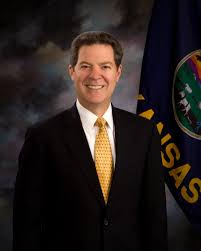“If this litigation continues, we will take a big step backward because parties won’t at all be incentivized to come together and negotiate.” So says Randall S. Eisenberg, the de facto chief restructuring officer for Caesars Entertainment, which is trying to quash a quartet of lawsuits that — it says — could wreak havoc with its bankruptcy process. Caesars’ argument is that the litigation could encumber $1.5 billion that the parent company has pledged to Caesars Entertainment Operating Co., aka “bad Caesars.”
Since the bankruptcy automatically puts litigation against CEOC in a deep freeze, creditors have little choice but to go after what they can get from “good Caesars.” Even that might not be possible if a New York court permits summary judgments against “good Caesars,” forcing it into Chapter 11. If that happens, it will probably set off a feeding frenzy on the carcass of Gary Loveman‘s company.
According to the Wall Street Journal, “Caesars has said the transactions were proper, designed to manage and improve subsidiary CEOC’s debt  load and liquidity.” They may not have been proper but they sure had the effect of moving the company’s prime assets (especially Total Rewards) out of the morass that is CEOC. The deal, which valued Total Rewards at zero dollars, stinks to high heaven and should be undone by the court.
load and liquidity.” They may not have been proper but they sure had the effect of moving the company’s prime assets (especially Total Rewards) out of the morass that is CEOC. The deal, which valued Total Rewards at zero dollars, stinks to high heaven and should be undone by the court.
“It’s all really, really smart guys who like to win, and a lot of dollars behind them,” says one observer of the scrum, which has seen such episodes as Caesars co-owner David Bonderman snubbing Caesars Palace for his 70th birthday party, holding it at Wynn Las Vegas instead. An adversary of Bonderman’s and Leon Black’s machinations says, “They were too smart by half, and they just pushed the edge of the envelope too much, and they’re getting called on it.”
Or, as one lawsuit says, “This is a case of unimaginably brazen corporate looting and abuse perpetrated by irreparably conflicted management.” Loveman tells Fortune Magazine that he wants to do something else, even though he’s retaining the chairmanships of Caesars and CEOC: “I won’t work in the casino business again. I’d like to do something completely different.” Hear, hear.
* A lawsuit by the State of Kansas against the Quapaw Tribe could be dismissed due to a government shutdown brought on by Gov. Sam  Brownback‘s inability to get a budget out of the Lege. The Quapaw have Downstream Casino Resort, on the Oklahoma state line, but want to expand it into 124 acres they own in the Sunflower State. Kansas Attorney General Derek Schmidt is arguing for the continuance on the grounds that not only is further research needed but he and his merry band of lawyers may be forcibly furloughed by the budget impasse.
Brownback‘s inability to get a budget out of the Lege. The Quapaw have Downstream Casino Resort, on the Oklahoma state line, but want to expand it into 124 acres they own in the Sunflower State. Kansas Attorney General Derek Schmidt is arguing for the continuance on the grounds that not only is further research needed but he and his merry band of lawyers may be forcibly furloughed by the budget impasse.
The Quapaw, meanwhile, enjoy the support of the Interior Department in their efforts to get the litigation dismissed, having put the disputed acreage in trust for gambling in 2012. By expanding into Kansas, the casino could offer games like roulette that it’s not permitted on its Oklahoma acreage. The state claims it was hoodwinked by the tribe and the latter argues it wouldn’t have started enlarging its casino if Kansas weren’t planning to sanction a casino for that corner of the state. That’s not what I’d call compelling logic but Kansas could forfeit this game through a no-show.
* It was a clear win for Native American tribes in the Ninth Circuit Court of Appeals this week. In a case involving the Big Lagoon Rancheria, the panel ruled that states can’t use the gaming-compact process to re-litigate the federal government’s recognition of a tribe a sovereign body.


All the money-hiding/shifting and imbecilic (non)management shenanigans of Loveman and his elves are truly mind-boggling for the average Joe citizen. The rest of us would have been incarcerated years ago. Caesars has maintained this mind-numbing debt (at least 20 billion) for nearly a decade. How and why are pertinent questions. Some folks BELONG in academia.